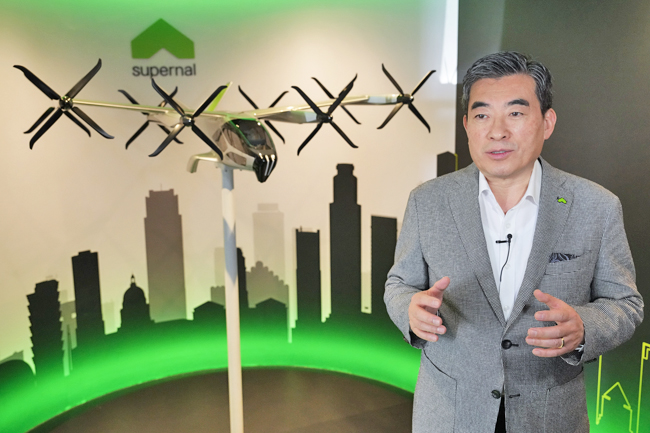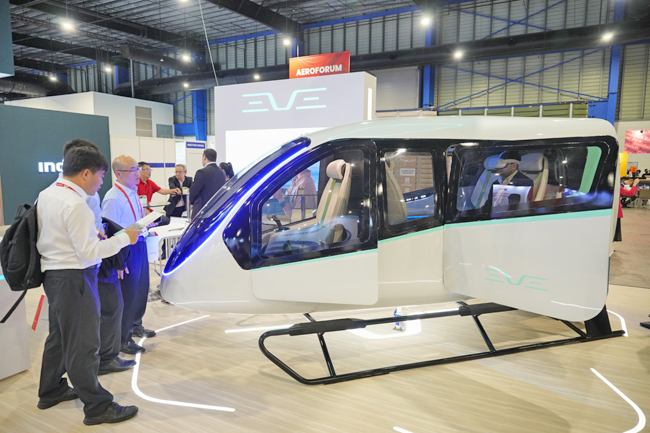SINGAPORE (AP) – As the aviation sector seeks ways to make air travel less polluting and more sustainable, aerospace company Embraer and South Korean automaker Hyundai are among the companies betting on a new form of air travel – air taxis.
Hyundai’s Supernal and Embraer-backed Eve Air Mobility are developing electric aircraft that take off and land vertically. The idea is that such air taxis might provide a sustainable form of air transport for densely populated cities and areas with less developed public transport networks.
Experts said they could help offset carbon emissions from the traditional aviation sector, but there are plenty of technological and regulatory challenges to making air taxis commercially viable.
Falling battery prices, advancements in technology and the participation of big players like Hyundai mean that such aircraft could soon be a reality, experts said.
Hyundai’s advanced air mobility unit Supernal and Embraer-backed Eve Air Mobility hope to officially launch electric-powered air taxis within the next two to four years.


“Ground transportation is evolving and improving, but to support all the mobility demands of… people in urban areas, ground transport will not be sufficient,” Supernal Chief Executive Officer (CEO) Shin Jaiwon said in an interview. “We have to open the skies above the cities.”
Supernal’s S-A2 electric aircraft, equipped with eight rotors, is designed to carry a pilot and four passengers.
The battery-powered air taxi will have a range of about 25 to 40 miles and will be able to take off and land vertically. It’s similar to a helicopter, but quieter and more sustainable in that it can help offset carbon emissions generated from traditional air travel, Shin said.
Supernal plans to test its first full-scale technology demonstration version in California this year and is in contact with the United States Federal Aviation Administration and the European Union’s aviation safety agency about policies and certification issues.
Earlier this week, Supernal and Singapore’s civil aviation authorities and officials in economic development formed a partnership to jointly develop the advanced air mobility sector in terms of research and regulatory frameworks. Brazilian firm Eve Air Mobility, a spin-off of aircraft manufacturer Embrarer, also is testing and developing an electric vertical take-off and landing (eVTOL) aircraft which it hopes to launch by 2026.
Like Supernal’s S-A2, the Eve Air Mobility’s aircraft is also expected to carry between four to six passengers with a range of 60 miles, without generating any local carbon emissions.
CEO of Eve Air Mobility Johann Bordais said that the electric-powered aircraft could be a new alternative for getting around in cities or areas lacking good public transport but they’re not replacements for traditional aircraft.
Air taxis are just one of many ways that the aviation sector is considering to improve sustainability.






